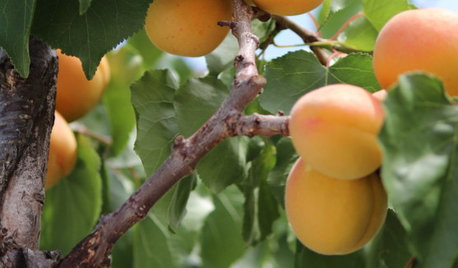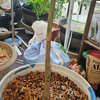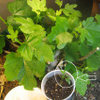Imidacloprid Usage in citrus trees holding fruit
evdesert 9B Indio, CA
9 years ago
Featured Answer
Sort by:Oldest
Comments (62)
fireballsocal
7 years agojohnmerr
7 years agoRelated Professionals
South Orange Landscape Architects & Landscape Designers · Brunswick Landscape Contractors · Clark Landscape Contractors · Federal Way Landscape Contractors · Garland Landscape Contractors · Golden Gate Landscape Contractors · Kaneohe Landscape Contractors · Long Branch Landscape Contractors · Middle River Landscape Contractors · New Cassel Landscape Contractors · Oklahoma City Landscape Contractors · Petaluma Landscape Contractors · Rochester Landscape Contractors · Siloam Springs Landscape Contractors · Baileys Crossroads Landscape ContractorsBarbJP 15-16/9B CA Bay Area
7 years agopip313
7 years agopip313
7 years agolast modified: 7 years agoBarbJP 15-16/9B CA Bay Area
7 years agopip313
7 years agopip313
7 years agopip313
7 years agopip313
7 years agoevdesert 9B Indio, CA
7 years agoUser
7 years agopip313
7 years agolast modified: 7 years agoLaura LaRosa (7b)
7 years agopip313
7 years agoevdesert 9B Indio, CA
7 years agoUser
7 years agopip313
7 years agopip313
7 years agoevdesert 9B Indio, CA
7 years agoUser
7 years agolast modified: 7 years agoLaura LaRosa (7b)
7 years agoLaura LaRosa (7b)
7 years agohobbyartisan (Saskatoon, SK Canada, 2b)
7 years agohobbyartisan (Saskatoon, SK Canada, 2b)
7 years agohobbyartisan (Saskatoon, SK Canada, 2b)
7 years agohobbyartisan (Saskatoon, SK Canada, 2b)
7 years agoUser
7 years agohobbyartisan (Saskatoon, SK Canada, 2b)
7 years agopip313
7 years agohobbyartisan (Saskatoon, SK Canada, 2b)
7 years agohobbyartisan (Saskatoon, SK Canada, 2b)
7 years agopip313
7 years agohobbyartisan (Saskatoon, SK Canada, 2b)
7 years agopip313
7 years agoPKG
7 years agoLaura LaRosa (7b)
7 years agojohnmerr
7 years agopip313
7 years agolast modified: 7 years agojohnmerr
7 years agopip313
7 years agolast modified: 7 years agopip313
7 years agolast modified: 7 years agojohnmerr
7 years agolast modified: 7 years agohobbyartisan (Saskatoon, SK Canada, 2b)
7 years agohobbyartisan (Saskatoon, SK Canada, 2b)
7 years agojohnmerr
7 years agolast modified: 7 years agohobbyartisan (Saskatoon, SK Canada, 2b)
7 years agojohnmerr
7 years ago
Related Stories

GARDENING GUIDESSpring Citrus Care Reaps Months of Sweet Rewards
Learn how to tend citrus trees in spring and ways to preserve their delicious fruit
Full Story
FARM YOUR YARDIf You Have Room for Only One Fruit Tree ...
Juice up a small garden with one of these easier-care or worth-the-effort fruit trees for a mild climate
Full Story
EDIBLE GARDENSHow to Grow 10 Favorite Fruit Trees at Home
Plant a mini orchard in fall, winter or early spring to enjoy fresh-off-the-tree fruit the following year
Full Story
ENTERTAININGEye-Catching Centerpieces Beyond Flowers and Fruit
Use your imagination to create a tableau that reflects your surroundings, creates dramatic tension or elicits surprise
Full Story
SPRING GARDENINGTop 10 Scented Plants for Your Garden
A palette of perfumed plants can transform even the smallest of gardens into a sensory delight
Full Story
LANDSCAPE DESIGN5 Ways to Use Trees to Create a Sensational Garden Space
Trees define spaces in multiple ways and bring a layer of shade and intrigue to the landscape
Full Story
TREESHow to Buy Healthy Trees and Shrubs
A healthy young plant with a strong form is more likely to do well in your yard. Here’s what to look for at the nursery
Full Story
PLANTING IDEASGreat Garden Combo: Tropical Beauties for a Sun-Drenched Border
These standouts hold up in drought, heat and humidity — and their good looks hold up to scrutiny
Full Story
EDIBLE GARDENSA Formerly Weedy Lot Now Brims With Edibles and Honeybees
Photographers transform their barren backyard into an oasis filled with fruit, vegetables, honey, eggs and more
Full Story
EDIBLE GARDENSHow to Grow Your Own Sweet Summer Crops
This guide will help any gardener get started on growing the freshest warm-season veggies and berries for summer
Full Story







pip313